Your resume is a representation of you and your work history. Use these six steps to get your resume to best represent you.
6 Easy Tips to Effective Resume Writing
Karen DiDonato ⋅ October 20, 2020
How long did it take you to create your resume? Hours? Days? Imagine if your hard work could be for naught in less than 7.4 seconds?
That’s entirely possible based on a 2018 study by TheLadders.com, an online job-matching service. Their eye-tracking software showed that hiring managers make up their minds about a job candidate in only 7.4 seconds. According to them, “Recruiters look at your current title and company on your resume then your previous one before moving to the right to see the dates of your jobs to make sure you have made a steady progression. Then they flip their eyes to the bottom to look at education requirements.” Then it’s either tossed or saved.
Every day at HCI we look through resumes. From medical laboratory technicians and histotechnicians to laboratory directors and pathologists, we have seen many varieties of resumes and CV’s. We have had resumes come in written in pink text, pasted with various images, and even a comic-strip looking one with text inside bubbles. We have seen resumes with misspellings, improper, yet comical abbreviations (“Ass Manager”, for example), and font size so small even a child’s eyes would struggle to read it. Years ago we received the perfect mailed-in paper resume with one problem: the person didn’t include their name or contact information!
Here is a list of six suggestions to easily make your resume look more attractive to hiring managers in those precious seconds before it’s either deleted or saved.
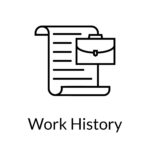
1) Clear and chronologically written work history.
Start with your most current job at the top. Include your current title, company name, start and end dates, and a short description of work. Underneath, add your previous title, company name, start and end dates, and short description. Add each subsequent position under so it reads in reverse chronological order.
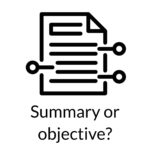
2) Add a resume summary or objective.
Resumes for people with years of work history should have summaries instead of objectives. A summary is simply a one- to two-sentence overview of your skills and work experience. According to Indeed, “A resume objective might be useful if you have limited work experience, like recent high school or college graduates.” They go on to say, “A resume summary is more appropriate if you have some work history and various skills and experiences worth highlighting.”
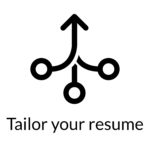
3) Tailor your resume to the job.
If the job title to which you are applying is for a core lab position, write a few sentences about your core lab experience. If the next job you plan to send your resume to is specifically a generalist position, change your summary or objective to your generalist experience. Your job descriptions and summary should focus on your experience as it relates to the job to which you are applying.
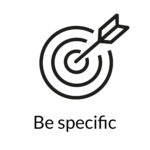
4) Be specific.
Education: Not only does the employer want to know what level of education you have, they want to know what the field of study was. Include the degree and the major, as well as the university name and location. If you are a new graduate, you may want to add the date the degree was conferred to ensure the reader understands why you may lack years of experience.
In contrast, we have also received resumes from Ph.D educated job seekers who list their elementary education on their CVs. This is unnecessary. Stick to higher education, or the education required for the position if you do not have a degree.
Certification/Licenses: If you have national certification such as ASCP or AMT, write it on your resume! Having that front and center could put your resume on top of one that doesn’t have it. Never assume the reader will know what certifications or state licenses you have.
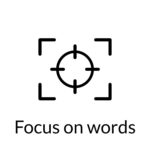
5) Focus on your words.
Action verbs: According to the University of Miami’s Division of Continuing & International Education Department, use action words “because they are easy for the reader to understand, find, and summarize.” The example they provided was:
“Worked as a supervisor for a team of six”, which they surmised would be better written as “Supervised a team of six.” According to them, “By using the action verb ‘supervised,’ the sentence is more concise, to the point, and understandable. It is now focusing on the action verb: supervised.”
Incorporate keywords: Given that your resume may only be looked at for 7.4 seconds, incorporate keywords into your job description and/or summary such as LIS, instrumentation, and specific tests. These words will jump off the page to the reader because they are specifically looking for them.
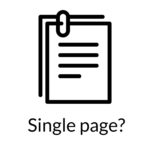
6) Length
Many resume writers try to fit their resume to the old fashioned one-page standard, but this isn’t true for everyone. CareerBuilder says, “Although there may be instances where a resume requires a longer length, such as an executive with over 20 years experience, you’ll likely want to keep your resume from extending beyond a single page.” If your resume is well written and avoids unnecessary work details, a one-page resume would be optimal since the second page would likely contain less relevant information anyway.
Taking your time to create a well written, well organized and clear resume will help your recruiter fully understand your work history to better match you to available positions. Prior to submitting your resume to any of our clients, we will go through it with you to make sure we fully understand your prior roles, education, and gaps in work history. We will represent you to the best of our ability in order to help you climb the job ladder, relocate to a new area, make a lateral move, or even begin traveling.
Take a look through our available positions. Feel free to apply or contact us for more information even if your resume may need a little help. We are here for you. We will help get your clear and concise resume in front of the hiring manager for whichever clinical or anatomic laboratory job you are best qualified for.
